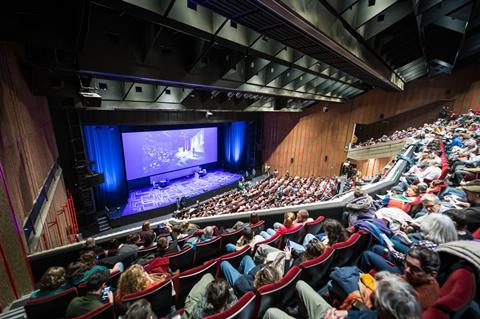
France’s Clermont-Ferrand International Short Film Festival has confirmed that, despite severe budget cuts, it will take place in February but with a reduced programme.
The organisers of the world’s biggest short film festival have reduced the number of shorts selected in two of its competition programme and have increased ticket prices.
The festival’s future seemed to hang in the balance in May after the Auvergne-Rhône-Alpes regional council voted to cut its funding by half from €210,000 to €100,000 for the 2023 financial year.
The festival said in a statement this week that “the uncertainty surrounding our financial situation has not abated” and that the budget cuts combined with the impact of Covid and increasing costs due to inflation have all hit hard. “We had to make some choices. They were not easy; and we hope they are not permanent.” It said it hopes this year’s event “will only be a one-off, thanks to our efforts and those of our public and private partners.”
The festival said it received a record 9,400 film submissions for 2024, 14% more than last year and will screen nearly 70 projects over the course of nine days. However, its national selection has been reduced from 12 to 10 shorts and international line-up from 14 to 12.
The festival, which launched in 1979 then added a short film market in 1986, is the second largest in France after Cannes, with more than 160,000 admissions for its 2023 event. It brings around €11m per year in additional economic spend to the region.
Many big directors have started their careers by playing shorts at the festival including Jane Campion, Mike Leigh, Olivier Assayas, Jessica Hausner, Matt Diop, Lea Mysius and Ladj Ly.
The festival and its supporters have long claimed that the move to cut the budget was politically driven, spearheaded by the regional council’s president Laurent Wauquiez and have argued that such a funding cut could also have wider implications for the entire film industry.
The festival’s president Eric Roux signed an open letter addressed to Wauquiez back in May urging him to reconsider the cuts in funding signed by several big names in the industry including Cédric Klapisch, Robert Guédiguian, Hiam Abbass, Xavier Beauvois, Laurent Cantet and Karin Viard.
France’s directors’ guild the SRF (who run Cannes’ Directors’ Fortnight), sent a statement this week in response to what they call a “brutal blow” to the festival’s funding in support of the festival.
It wrote: “The example set by Clermont-Ferrand should be a wake-up call. Festivals, already severely weakened by cost inflation and the health crisis, need the support of their public partners more than ever. The withdrawal of a public authority can jeopardise the very existence of a festival - and with it the emergence of young directors, their professional integration, cultural diversity and access to cinema for all.”
The SRF named Wauquiez directly, saying he “claims to be making Clermont-Ferrand a European Capital of Culture, but his regional council’s decision is helping to suffocate an event that is emblematic of the region and is tending to impoverish the cultural offering.”
The festival said that the reduction of quantity in its 2024 edition is by no means a measure of quality and that it is “quite the opposite. Cinema’s heart has never stopped beating, and Clermont-Ferrand remains the lungs of the short form.” It said it hopes to bring back the complete programme in 2025.
Clermont-Ferrand runs from February 2-10, 2024.















![[L-R]: Amanda Villavieja, Laia Casanovas, Yasmina Praderas](https://d1nslcd7m2225b.cloudfront.net/Pictures/274x183/6/4/1/1471641_pxl_20251224_103354743_618426_crop.jpg)









No comments yet